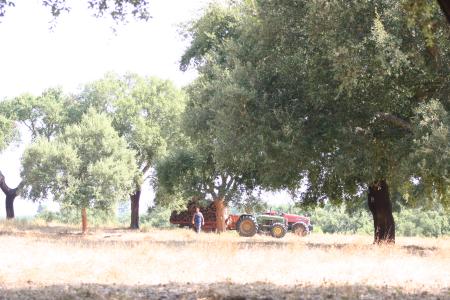
Objective:
Improving the competitiveness of the cork oak producers, by improving the quality of the production process and the sustainability of the cork oak forest, by introducing new innovative methods and practices applied to the various stages of the production process and commercialization of the raw material, are essential to guarantee the vitality in the sector.
The profitability of the debarking, transportation and storage operations by promoting or increasing the efficiency of the processes along the potential value chain, with bring greater valorization of the raw material and improvements at the commercialization stage.
Context:
Despite the fact that Portugal is the main world cork producer and this continues to be an activity with great representativeness in national exports, cork is no longer an exclusive material for wine closure, with the appearance of alternative products, like plastic and aluminium for the same purpose. These changes may lead to a reduction in the economic value of the cork oak forests, representing a threat to the sustainability of these important landscapes and, consequently, to territories where their influence is decisive as an engine of economic development.
Already in 2005, PRIA (1) identified as a technological need: improving the logistics between debarking up to the factory.
Contacts:
Conceição Santos Silva, mcssilva@unac.pt, www.apfc.pt
Further information:
- Augusto Mateus e Associados, 2005 – PRIA - Plano Regional de Inovação do Alentejo. CCDR Alentejo. ISBN 972-644-112-9.
- Lopes, M.V., 2018 - Fileira da cortiça: Estratégias diferenciadoras na fase pós colheita. FICOR – Feira Internacional da Cortiça.
- Sorensen, C.A., Larsen, P.G., 2017 - Off-line and on-line logistics planning of harvesting processes. Danish Innovation Foundation.